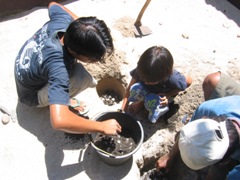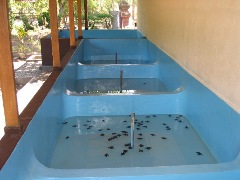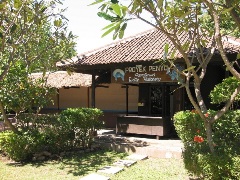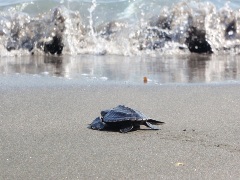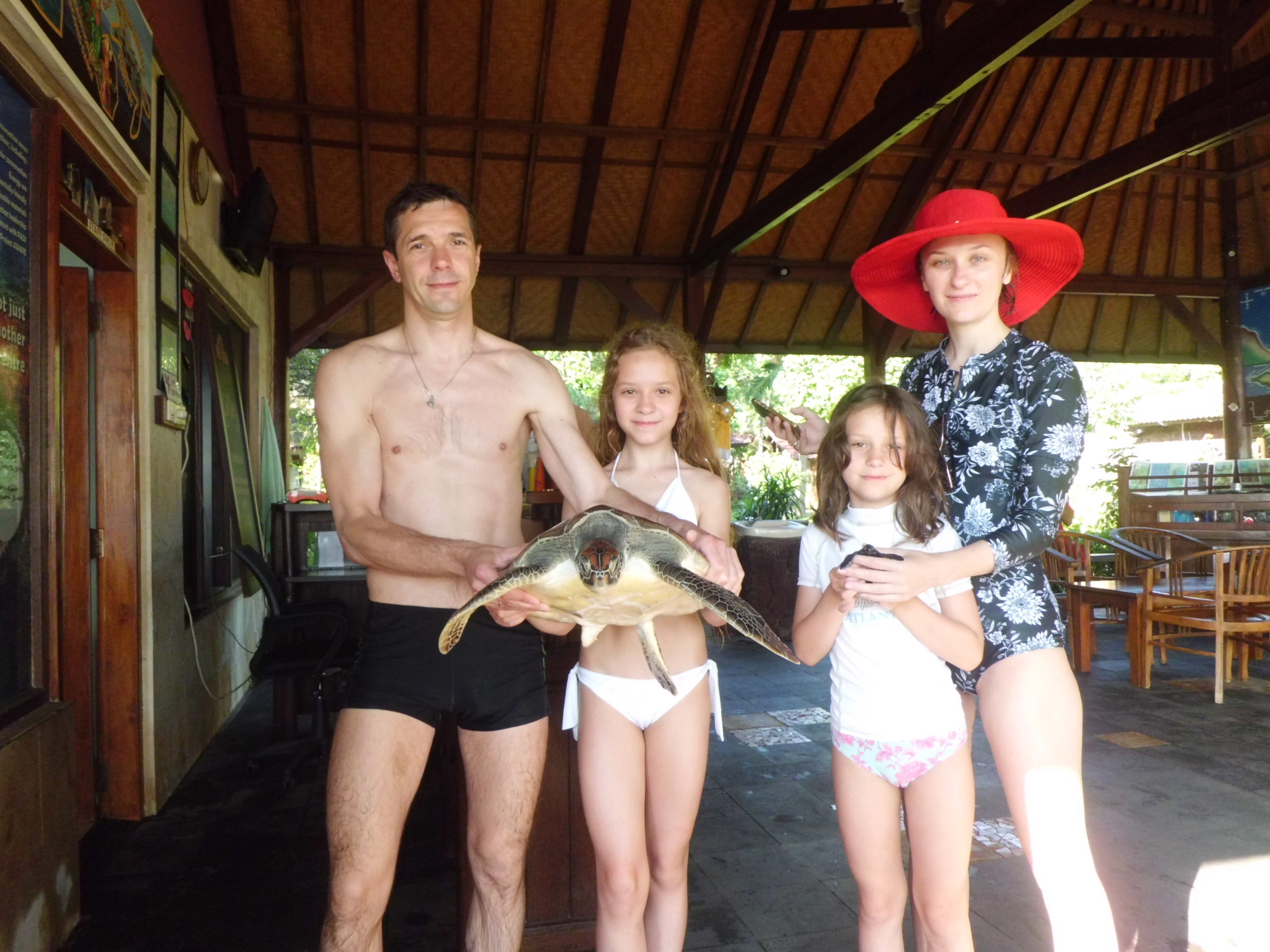Bali Turtle Hatchery
Project Penyu – The Turtle Project
A Reef Seen Divers’ Resort project with the local village to help the plight of sea turtles.
Sea turtles are one of the oldest living species on our planet. After surviving for over 100 million years, in our time their numbers are dwindling – in fact, the Convention on International Trade of Endangered Species of Wild Fauna and Flora declared the Green Sea Turtle endangered and since 1979 has prohibited all international commerce in sea turtle products.
So what has lead to this decline? In Bali alone, up to 30,000 sea turtles were slaughtered every year. A small percentage is used for ceremonial purposes, while the rest die for their meat. Turtle eggs are under attack as well, since they are considered to be a delicacy. Turtle shells are used for ornamental purposes mostly for the tourist market. There is also destruction of habitat, which contributes to the decline in sea turtle population.
In the wild, sea turtles around 15 to 30 years of age start laying eggs every other year. They are said to return and nest at the same beach they came from. Each turtle lays up to 150 eggs at a time, but it is estimated that only one in 100 to one in 1000 finally reaches the age to reproduce.
The purposes of the Reef Seen Turtle Hatchery Project are firstly, to protect the living sea turtles and secondly, to increase the chances for turtle hatchlings to reach maturity. We reward the locals who will find a newly-laid sea turtle’s nest and either bring it or we collect the eggs ourselves. By doing so, we encourage villagers not to kill or capture mature turtles, who are likely to return and lay more eggs. At the same time, turtle eggs that would otherwise have been eaten are protected and given the chance to hatch. The hatchlings are kept at Reef Seen in a holding tank, where they are fed and cared for until they are bigger and have a greater chance of survival in the open sea. According to the season, we have eggs from three different species of sea turtles – Green, Olive Ridley, and Hawksbill.
Our main energy isn’t put into the hatchery itself but into raising local awareness of the need for conservation. Local fishermen increasingly recognize the problems of over-exploitation of natural resources. We are hopeful that their knowledge will be passed on to other villages as well as to following generations.
What you can do to help the Turtle Project ?
Apart from a few large private donations, most of our funding comes from smaller donations from our visitors. For a small donation you can visit and hear the story of the project. You can also sponsor and release a juvenile turtle (numbers permitting). For this or any other form of assistance to the program you will receive a certificate of recognition. Souvenirs & t-shirts are also available, with proceeds going to the project. The project is strictly not-for-profit.
Open every day of the year (except Nyepi)
from 9-5pm, tour explanation each half hour, feeding time at 4:30pm
If there is juvenile turtle available for release this must be done between 9-10am
Turtle Project Online Sponsorship Program
Help us keep the Turtle Project running.
Unfortunately, with no tourism here in Bali now, we have no source of donations to help us keep the project running. For those of you that have visited our Turtle Project here at Reef Seen you will know that this project not only protects the eggs, hatchlings and adult turtles, but at the same time allows us to help the local villagers financially as well. A “Win Win” situation that has proved itself here over the past 28 years. A cycle that works, giving incentives to protect the sea turtles and now also helping to protect the other marine resources that we have here.
However, the Sea Turtles know nothing about the Covid 19 Pandemic. They still keep on coming to lay their eggs safely on the beaches here and the locals, more now than ever, are grateful for the reward they get for protecting these eggs. Currently, as at 22 April, 2020, we have 150 hatchlings in the tanks, some ready to be released early next month, as well as over 400 eggs in the hatchery. All this costs money, which, without any tourism, is slowly running low.
Recently I have had several people contact me asking how they can continue to help the project, since they are unable to visit here in the near future. One suggested that I create a system whereas people could sponsor the release of a hatchling online. Great idea, so we are going ahead with it. You make a donation to sponsor, we release the hatchling once it is ready, we send you photos, a short personalized video of the hatchling going from the tanks to the sea, as well as a printable Certificate of Thanks.
Thank you for your assistance.
Chris Brown
Director Reef Seen Divers’ Resort
Founder “The Turtle Project”
